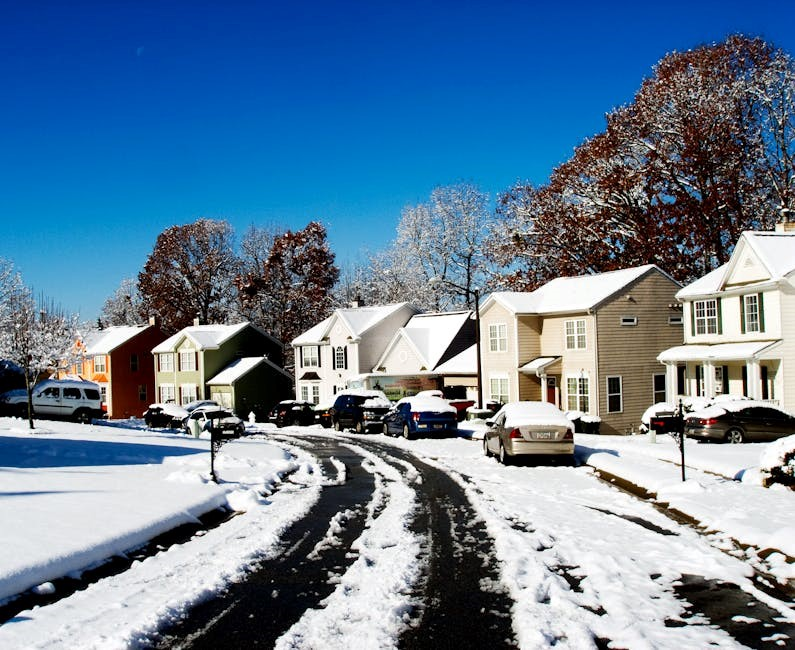georgia residential lease agreement pdf
- Published
- in PDF
A Georgia Residential Lease Agreement is a legally binding contract outlining rental terms‚ protecting both landlords and tenants. It ensures compliance with state laws‚ providing clarity on responsibilities and obligations‚ while offering customizable templates for easy creation and signing.
Overview of the Georgia Residential Lease Agreement
A Georgia Residential Lease Agreement is a detailed contract between a landlord and tenant‚ outlining terms for renting residential property. It covers rent‚ lease duration‚ responsibilities‚ and payment terms‚ ensuring both parties understand their obligations. This agreement is legally binding and customizable to fit specific needs‚ providing clarity on expectations and rights. It helps prevent disputes by addressing key issues upfront‚ making it essential for both landlords and tenants in Georgia. PDF templates are widely available for easy creation and signing.
Importance of a Written Lease Agreement in Georgia
A written lease agreement is crucial in Georgia as it provides legal protection for both landlords and tenants. It clearly outlines rental terms‚ responsibilities‚ and expectations‚ reducing the risk of disputes. A written contract ensures compliance with Georgia state laws and offers a reference point for resolving conflicts. By documenting rent amounts‚ payment terms‚ and lease duration‚ it provides clarity and security for both parties‚ making it an essential document for any rental arrangement in Georgia.

Key Components of a Georgia Residential Lease Agreement
A Georgia Residential Lease Agreement outlines essential terms‚ including tenant and landlord details‚ property description‚ rent‚ lease duration‚ and signatures. It ensures legal compliance and clarity for both parties‚ providing a structured framework for the rental relationship while addressing specific Georgia legal requirements and protecting the interests of all involved in the rental process.
Parties Involved in the Lease
The lease agreement identifies the landlord and tenant as the primary parties. The landlord owns the property‚ while the tenant rents it for residential use. Both parties must sign the agreement‚ acknowledging their roles and responsibilities. The landlord is responsible for property maintenance‚ while the tenant agrees to pay rent and adhere to lease terms. This section ensures clarity on who is legally bound by the agreement‚ establishing a formal rental relationship between the parties involved.
Property Description and Terms
The lease provides a detailed description of the rental property‚ including its address and specific features. It outlines permitted uses‚ such as residential occupancy‚ and any restrictions on alterations or subletting. This section ensures both parties have a clear understanding of the property’s condition and allowable activities; It also establishes the lease duration and occupancy limits‚ protecting both landlord and tenant by defining the scope of the rental arrangement. This clarity helps prevent future disputes over property use.
Rental Amount and Payment Terms
The lease specifies the rental amount‚ due dates‚ and accepted payment methods. It outlines late fees and penalties for overdue payments. This section ensures clarity on financial obligations‚ preventing disputes. It also defines any additional charges‚ such as security deposits or utility fees. By detailing payment terms‚ the agreement protects both parties‚ ensuring timely payments and outlining consequences for non-compliance. This transparency helps maintain a smooth landlord-tenant relationship throughout the lease period.
The lease duration specifies the start and end dates of the tenancy‚ whether fixed-term or month-to-month. It details renewal options‚ such as automatic renewal or required notice for extension. This section ensures both parties understand their commitment length and renewal rights. It also outlines termination procedures if renewal isn’t pursued‚ providing clarity on ending or continuing the agreement. This structure helps prevent misunderstandings and ensures a smooth transition at the lease’s conclusion. Georgia Residential Lease Agreements must comply with state laws‚ including required disclosures about security deposits‚ habitability‚ and eviction processes‚ ensuring transparency and legal protection for both landlords and tenants. Georgia’s residential lease laws regulate security deposits‚ eviction processes‚ and landlord responsibilities. Landlords must maintain habitable premises and provide proper notice for lease terminations or rent increases. Tenants are protected from unfair practices‚ and specific disclosures are required in the lease agreement. Compliance with these laws ensures a balanced and legally sound rental relationship‚ safeguarding both parties’ rights and obligations under Georgia state law. Understanding these regulations is essential for drafting a compliant lease agreement. Georgia law mandates specific disclosures in residential lease agreements to ensure transparency and fairness. Landlords must disclose the security deposit handling procedures‚ lead-based paint hazards (if applicable)‚ and the identity of the property owner or manager. Additionally‚ they must comply with the Georgia Landlord-Tenant Act‚ which outlines tenant rights and landlord obligations. Failure to include these disclosures can lead to legal consequences‚ making it essential to thoroughly review and include all required information in the lease agreement. Creating a Georgia Residential Lease Agreement involves using a customizable template‚ ensuring all legal clauses are included‚ and tailoring terms to meet specific rental needs. Drafting a Georgia Residential Lease Agreement begins with gathering necessary information‚ such as tenant and property details. Select a customizable template that complies with Georgia laws. Fill in the rental terms‚ including rent amount‚ payment methods‚ and due dates. Include property-specific rules and any additional clauses‚ like pet policies. Review the document for clarity and completeness‚ ensuring all legal requirements are met. Finally‚ save the document and prepare it for signatures from all parties involved. Customizing a Georgia Residential Lease Agreement involves tailoring the document to address unique circumstances. Start with a standard template and modify clauses to suit the property and tenant requirements. Common customizations include pet policies‚ security deposit terms‚ and specific property rules. Ensure all additions comply with Georgia landlord-tenant laws. Clearly outline responsibilities for maintenance‚ repairs‚ and utilities. Review the lease to ensure it reflects the agreed-upon terms and protects both parties’ interests effectively. A Georgia Residential Lease Agreement offers legal protection‚ clear terms‚ and dispute prevention. It ensures landlord and tenant rights are upheld‚ fostering a harmonious rental relationship. A Georgia Residential Lease Agreement provides mutual protection by outlining each party’s responsibilities. For landlords‚ it secures rental income and property protection‚ while for tenants‚ it ensures fair treatment and clarity on lease terms. Legal compliance safeguards both parties‚ preventing disputes and ensuring rights are upheld throughout the tenancy. This balanced approach fosters a respectful and legally sound rental relationship in Georgia. A Georgia Residential Lease Agreement clearly defines the roles and duties of both landlords and tenants. It specifies property maintenance responsibilities‚ rent payment terms‚ and lease duration. By outlining expectations‚ it reduces misunderstandings and ensures both parties understand their commitments. This clarity helps prevent disputes and promotes a harmonious rental relationship‚ ensuring all obligations are met as per the agreement. Download a customizable Georgia Residential Lease Agreement template online. Ensure it complies with state laws and includes all necessary clauses for a legally binding rental contract. Downloading a Georgia Residential Lease Agreement template online is a convenient and efficient process. Websites like Rocket Lawyer and legal template platforms offer customizable PDF forms. These templates are designed to comply with Georgia state laws and include essential clauses. Simply search for “Georgia Residential Lease Agreement PDF‚” select a reputable source‚ and download the form. Ensure the template is editable to tailor it to your specific rental property needs. This method saves time and ensures compliance with legal requirements. Filling out a Georgia Residential Lease Agreement form requires careful attention to detail. Start by entering the names and addresses of both the landlord and tenant. Include the property description‚ rental amount‚ and lease duration. Specify payment terms‚ late fees‚ and security deposit details. Outline responsibilities for maintenance and repairs. Customize clauses for pets‚ guests‚ and subletting. Ensure all fields are completed accurately to avoid disputes. Review the document thoroughly before signing to confirm all terms are agreed upon by both parties. The landlord and tenant must sign the lease agreement‚ ensuring both parties understand the terms. Witnesses or notarization may be required for legal validity in Georgia. The landlord or property manager and all tenants must sign the lease agreement. Witnesses or notarization may be required in some cases. Each party should receive a copy of the signed document to ensure transparency and legal validity. Signatures confirm mutual agreement to the terms outlined in the lease. Tenants under 18 may require a co-signer or guardian’s signature. Ensuring all parties sign prevents disputes and validates the contract under Georgia law. In Georgia‚ witnesses are not typically required for a lease agreement‚ but having one can add security. Notarization is also not mandatory unless specified by local law or unique circumstances. However‚ ensuring all parties sign the lease is crucial for its validity. For added protection‚ some landlords prefer notarizing the document‚ especially in complex agreements. Both tenants and landlords should retain a signed copy for their records. Consulting a legal professional can clarify specific requirements and ensure compliance with state regulations. Common errors include omitting key clauses‚ unclear rental terms‚ and improper handling of security deposits. Ensuring all terms are detailed and legally compliant is essential for both parties. Common mistakes in preparing a Georgia Residential Lease Agreement include omitting key clauses like termination notices and repair responsibilities. Landlords often overlook including specific details about rent payment methods and due dates‚ which can lead to disputes. Additionally‚ failing to mention the handling of security deposits and property inspections can result in legal complications. It is crucial to ensure all terms are clearly defined and comply with Georgia state laws to avoid misunderstandings and potential legal issues down the line. Omissions in a Georgia Residential Lease Agreement can lead to legal complications and misunderstandings. Common oversights include failing to specify rules for security deposits‚ lease termination procedures‚ and tenant repair responsibilities. Omitting details about rent payment methods or late fees can also cause disputes. Additionally‚ not including clauses about property inspections or pet policies may result in unresolved issues. Carefully drafting and reviewing the lease ensures all critical terms are included‚ protecting both landlords and tenants from potential conflicts and legal challenges. Tenants in Georgia have rights‚ such as fair housing and safe living conditions. Obligations include paying rent‚ maintaining the property‚ and adhering to lease terms responsibly. Tenants in Georgia have specific responsibilities under a lease agreement. These include paying rent on time‚ maintaining the property‚ and reporting needed repairs. Tenants must also comply with all lease terms‚ such as no unauthorized pets or subleasing. They are expected to keep the property clean and safe‚ respecting quiet enjoyment rights. Failure to meet these obligations can lead to legal action‚ emphasizing the importance of understanding and adhering to the lease agreement’s terms. Tenants in Georgia have legal rights protecting them under state law. These include the right to a habitable living space‚ protection from illegal evictions‚ and safeguards against unfair practices. Landlords must provide written notice for rent increases or lease terminations‚ typically 60 days in advance. Tenants are also entitled to due process before any legal action‚ ensuring their rights are upheld throughout the rental process. Landlords in Georgia have the right to collect rent‚ enforce lease terms‚ and manage property. They must maintain habitable conditions‚ provide proper notice for changes‚ and follow eviction laws. Georgia landlords must maintain rental properties in habitable condition‚ ensuring safety and functionality. They are required to disclose certain information in the lease‚ such as their contact details and any known hazards. Landlords must also adhere to legal eviction processes and provide proper notice for lease terminations or rent increases. Compliance with all state and local housing codes is mandatory to protect tenant rights and avoid legal disputes. Landlords in Georgia can enforce lease terms by following legal procedures for addressing violations. This includes issuing proper notices for late payments‚ unauthorized occupants‚ or property damage. If tenants breach the agreement‚ landlords may pursue eviction after providing required notice periods. Courts typically favor landlords who adhere to Georgia’s eviction laws and maintain detailed records of lease violations. Legal action must be taken in compliance with state regulations to ensure enforceability of the lease terms. A Georgia Residential Lease Agreement outlines termination clauses‚ notice periods‚ and eviction processes. It ensures both parties understand procedures for ending tenancy legally and amicably. Termination clauses outline conditions for ending a lease‚ such as breach of contract or expiration. Georgia requires landlords to provide notice‚ typically 60 days for lease termination. Tenants must also give 60 days’ notice before vacating. These clauses ensure both parties understand their obligations and timelines‚ preventing disputes. Proper notice periods align with Georgia landlord-tenant laws‚ ensuring smooth transitions and compliance. Clear terms safeguard both landlord and tenant rights‚ avoiding legal complications during lease termination. The eviction process in Georgia involves legal steps for landlords to remove tenants. It begins with a termination notice for non-payment or lease violations. Landlords must file a dispossessory affidavit in court‚ leading to a hearing. If the court rules in favor of the landlord‚ a writ of possession is issued‚ allowing law enforcement to remove the tenant. Georgia law requires strict adherence to timelines and procedures‚ ensuring fairness and legal compliance for both parties. Understanding this process is crucial for landlords and tenants alike. A Georgia Residential Lease Agreement is a vital document ensuring clarity and legal compliance for both landlords and tenants. It protects the rights and obligations of all parties involved‚ preventing potential disputes. By understanding the key components‚ legal requirements‚ and proper procedures‚ landlords and tenants can navigate the rental process smoothly. A well-crafted lease agreement fosters a balanced relationship‚ ensuring a fair and secure rental experience in Georgia.Lease Duration and Renewal Options

Legal Requirements and Disclosures
Georgia-Specific Laws and Regulations
Required Disclosures in the Lease Agreement

Creating a Georgia Residential Lease Agreement
Steps to Draft a Lease Agreement
Customizing the Lease for Specific Needs
Benefits of Using a Georgia Residential Lease Agreement
Protection for Landlords and Tenants
Clarity on Responsibilities and Obligations

How to Obtain a Georgia Residential Lease Agreement PDF
Downloading a Template Online
Filling Out the Lease Agreement Form

Signing the Lease Agreement
Who Needs to Sign the Lease
Witnesses and Notarization Requirements
Common Mistakes to Avoid
Errors in Lease Agreement Preparation
Omissions in Key Clauses
Tenant’s Rights and Obligations
Understanding Tenant Responsibilities
Legal Rights of Tenants in Georgia
Landlord’s Rights and Obligations
Landlord Responsibilities Under Georgia Law
Enforcing Lease Agreement Terms

Ending the Lease Agreement
Termination Clauses and Notice Periods
Eviction Process in Georgia
